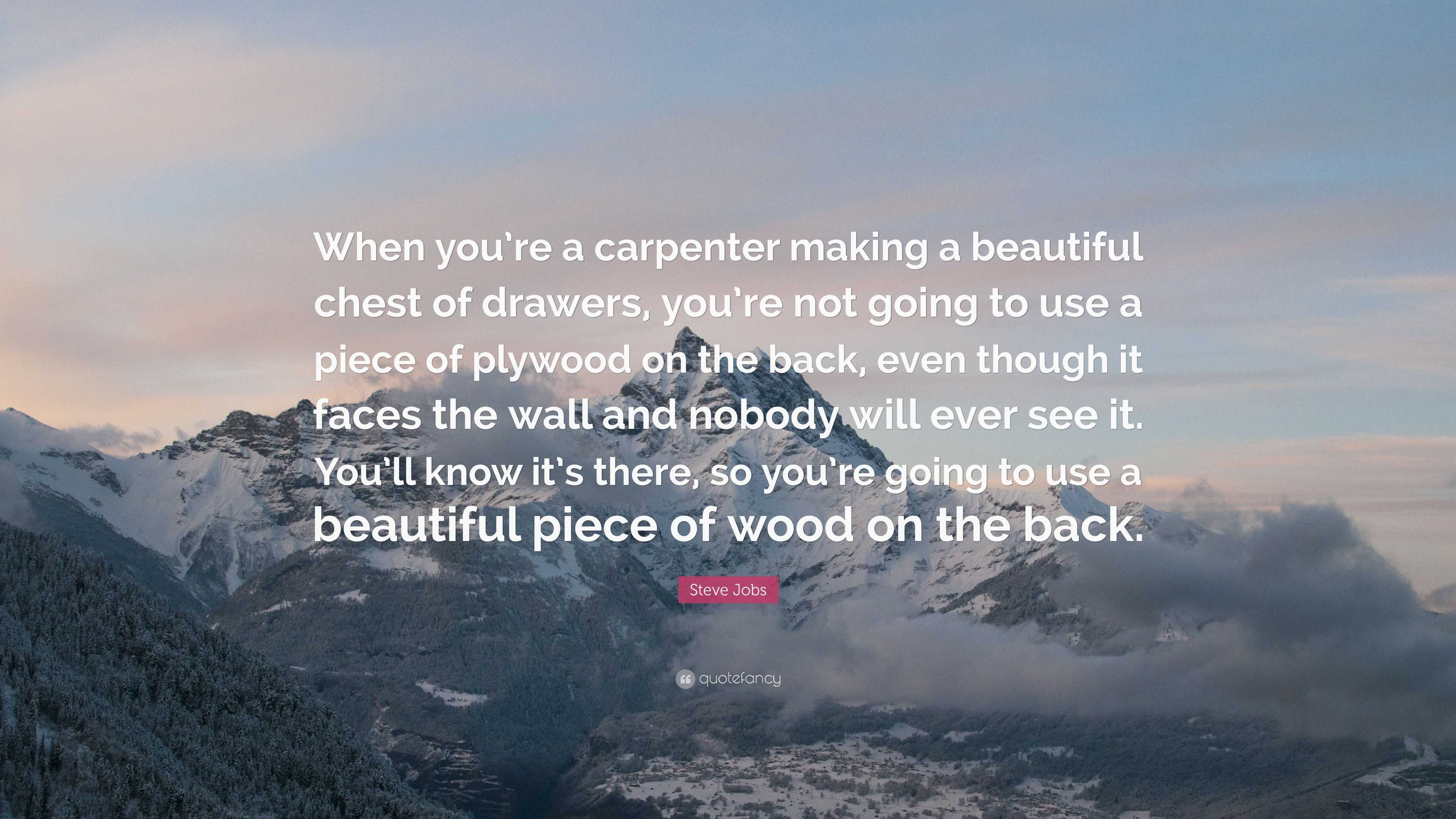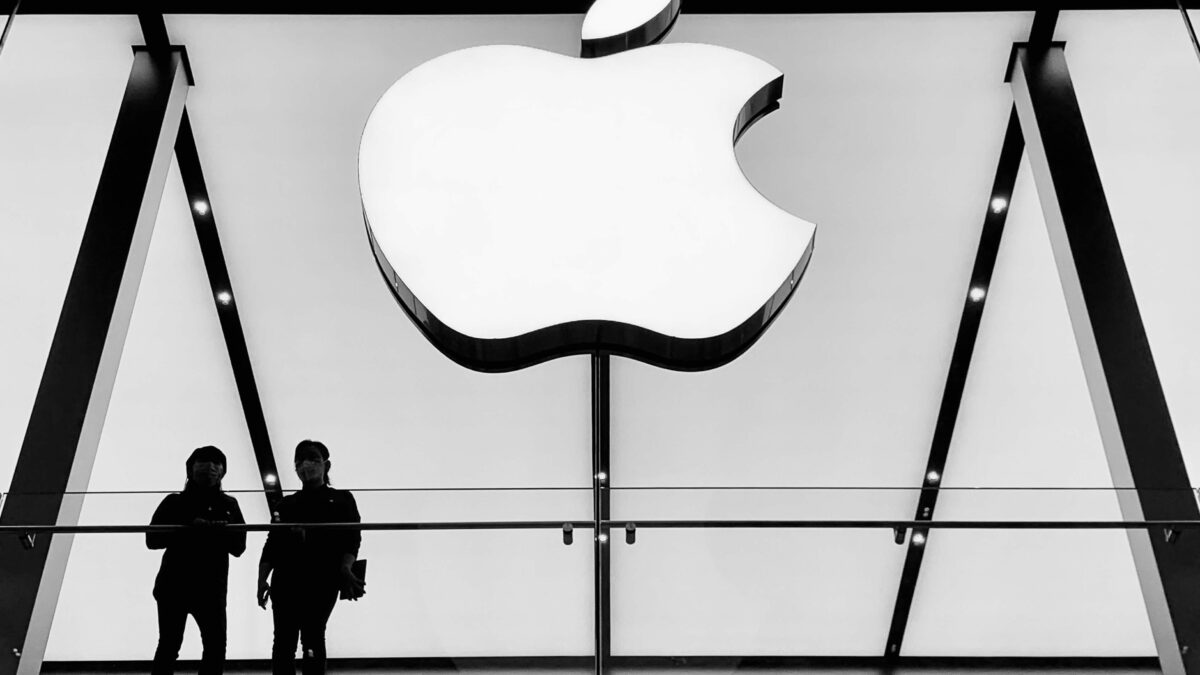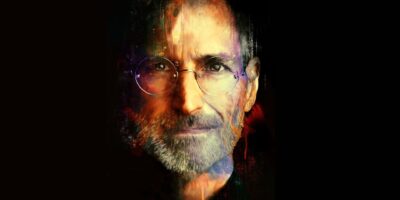Inspiration from a Business Legend
When Steve Jobs passed away in 2011 at the young age of 56, the untimely loss of Apple’s CEO reverberated far beyond the business world. Jobs was more than just the head of Apple; he was a true visionary, and his “think different” approach to business and technology both ensured his company’s phenomenal success and made him one of the country’s most admired business leaders.
Jobs was well known for his frankness and for his unorthodox outlook. Habitually clad in his trademark casual black turtleneck and blue jeans, this California boy regularly dispensed his words of wisdom — on both business and life — with a wry sense of humor that endeared him to many.
We’ve collected some of his most memorable sayings over the years, from the early days of Apple’s success to the years leading up to his death. No matter what kind of business you’re running, you can learn a thing or two about extraordinary business leadership from his example.
On the Importance of Quality
“When you’re a carpenter making a beautiful chest of drawers, you’re not going to use a piece of plywood on the back, even though it faces the wall and nobody will ever see it. You’ll know it’s there, so you’re going to use a beautiful piece of wood on the back. For you to sleep well at night, the aesthetic, the quality, has to be carried all the way through.”
—Playboy, February 1985
On Anticipating Customer Expectations
“You can’t just ask customers what they want and then try to give that to them. By the time you get it built, they’ll want something new.”
— Inc., April 1989
On What Matters Most
“Being the richest man in the cemetery doesn’t matter to me. Going to bed at night saying we’ve done something wonderful — that’s what matters to me.”
— Wall Street Journal, May 25, 1993
On the Importance of Hiring Great Employees
“Technology is nothing. What’s important is that you have a faith in people, that they’re basically good and smart, and if you give them tools, they’ll do wonderful things with them. It’s not the tools that you have faith in — tools are just tools. They work, or they don’t work. It’s people you have faith in or not.”
— Rolling Stone, June 1994
On Microsoft Founder Bill Gates
“I wish him the best, I really do. I just think he and Microsoft are a bit narrow. He’d be a broader guy if he had dropped acid once or gone off to an ashram when he was younger.”
—New York Times, January 12, 1997
On Being Selective About Challenges
“People think focus means saying yes to the thing you’ve got to focus on. But that’s not what it means at all. It means saying no to the hundred other good ideas that there are. You have to pick carefully. I’m actually as proud of the things we haven’t done as the things I have done. Innovation is saying no to 1,000 things.”
— Apple Worldwide Developers’ Conference, 1997
On Innovation
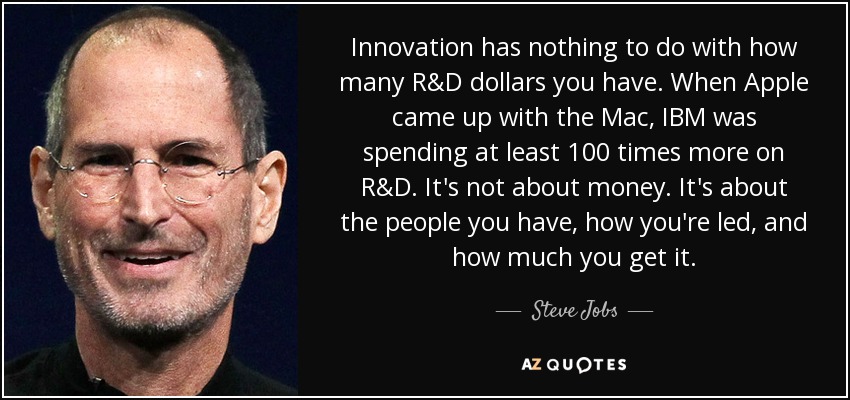
“Innovation has nothing to do with how many R&D dollars you have. When Apple came up with the Mac, IBM was spending at least 100 times more on R&D. It’s not about money. It’s about the people you have, how you’re led, and how much you get it.”
— Fortune, November 1998
On the Value of Perseverance
“The problem with the Internet startup craze isn’t that too many people are starting companies; it’s that too many people aren’t sticking with it. That’s somewhat understandable because there are many moments that are filled with despair and agony when you have to fire people and cancel things and deal with very difficult situations. That’s when you find out who you are and what your values are.”
—Fortune, January 2000
On Blazing Your Own Trail
“Your time is limited, so don’t waste it living someone else’s life. Don’t be trapped by dogma — which is living with the results of other people’s thinking. Don’t let the noise of others’ opinions drown out your own inner voice. And most important, have the courage to follow your heart and intuition. They somehow already know what you truly want to become. Everything else is secondary.”
–Stanford commencement speech, June 2005
On Finding Simple Solutions
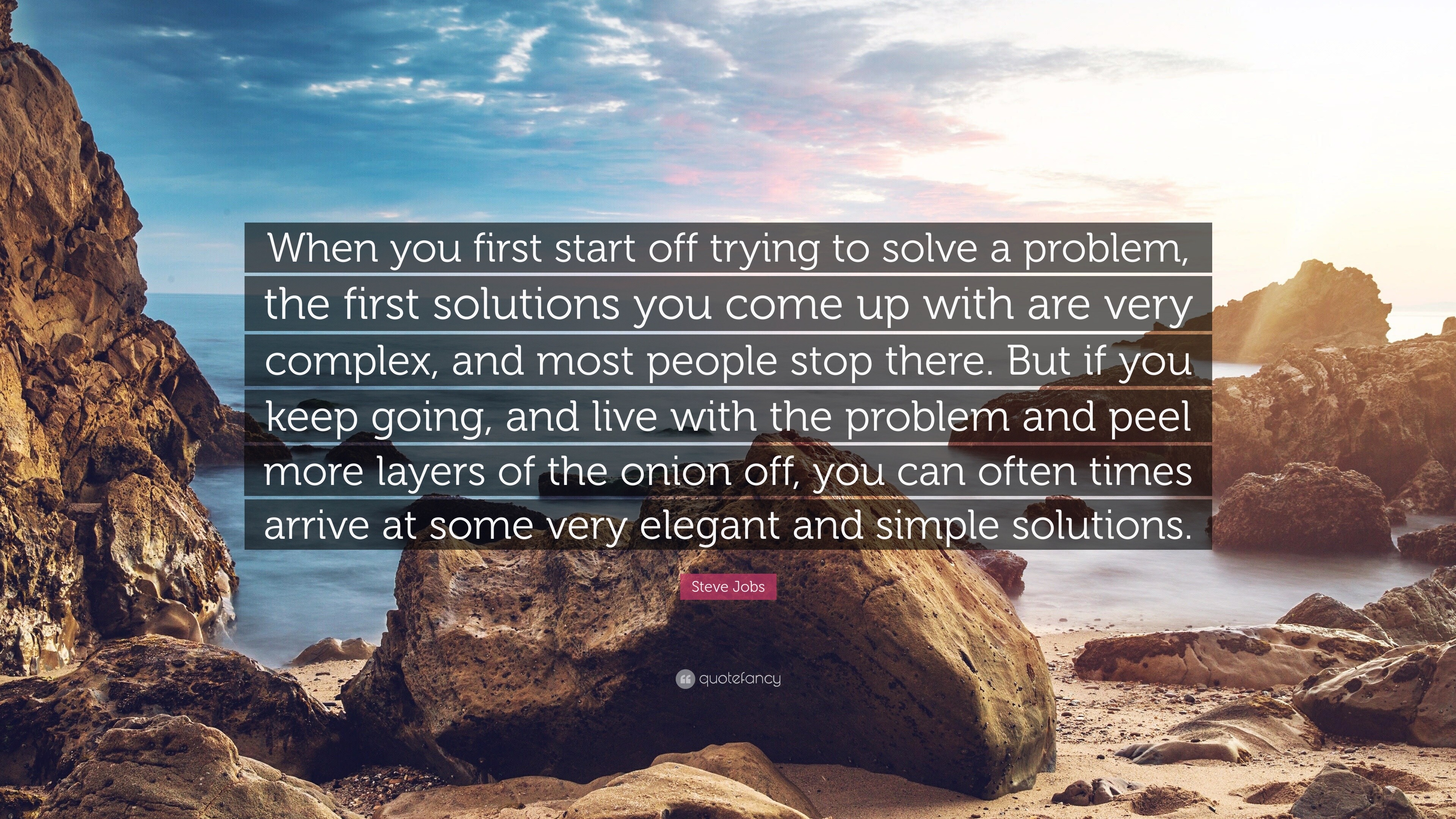
“When you first start off trying to solve a problem, the first solutions you come up with are very complex, and most people stop there. But if you keep going, and live with the problem and peel more layers of the onion off, you can oftentimes arrive at some very elegant and simple solutions. Most people just don’t put in the time or energy to get there. We believe that customers are smart, and want objects which are well thought through.”
— Newsweek, October 14, 2006
On Bringing a ‘Revolutionary’ Product to Market
“Every once in a while a revolutionary product comes along that changes everything…. One is very fortunate if you get to work on just one of these in your career. Apple’s been very fortunate it’s been able to introduce a few of these into the world.”
— Announcement of the iPhone, January 9, 2007
On Making It Through the ‘Great Recession’
“A lot of companies have chosen to downsize, and maybe that was the right thing for them. We chose a different path. Our belief was that if we kept putting great products in front of customers, they would continue to open their wallets.”
— New York Times, June 5, 2007
On the Role of a Business Leader
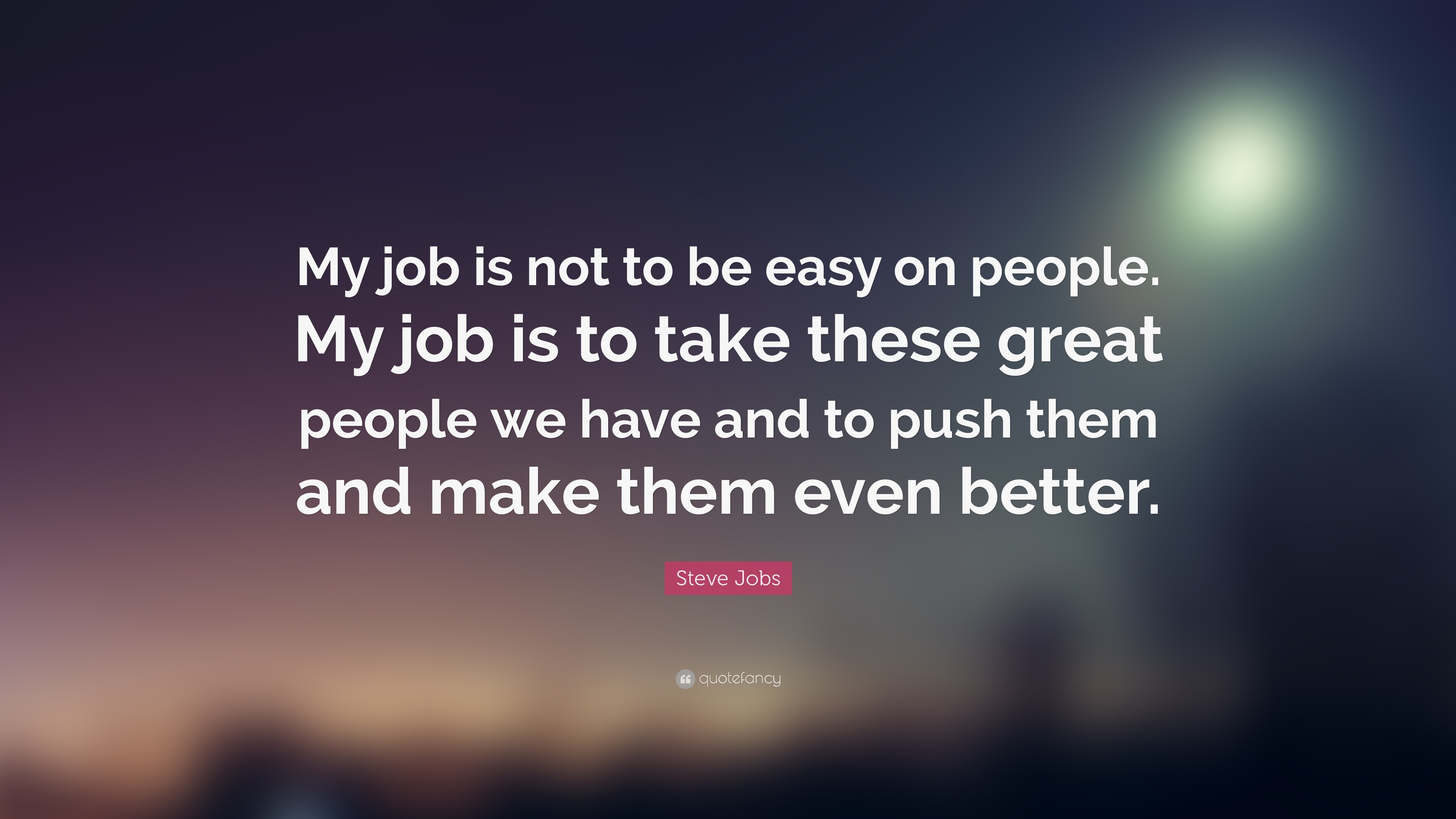
“My job is to not be easy on people. My job is to make them better. My job is to pull things together from different parts of the company and clear the ways and get the resources for the key projects. And to take these great people we have and to push them and make them even better, coming up with more aggressive visions of how it could be.”
— Fortune, March 2008
On the Value of Teams
“My model for business is The Beatles. They were four guys who kept each other’s kind of negative tendencies in check. They balanced each other and the total was greater than the sum of the parts. That’s how I see business: great things in business are never done by one person, they’re done by a team of people.”
— “60 Minutes,” 2008
On Resisting the Establishment
“Why join the Navy … if you can be a pirate?”
— As quoted in Young Guns: The Fearless Entrepreneur’s Guide to Chasing Your Dreams and Breaking Out on Your Own by Robert Tuchman, 2009.



